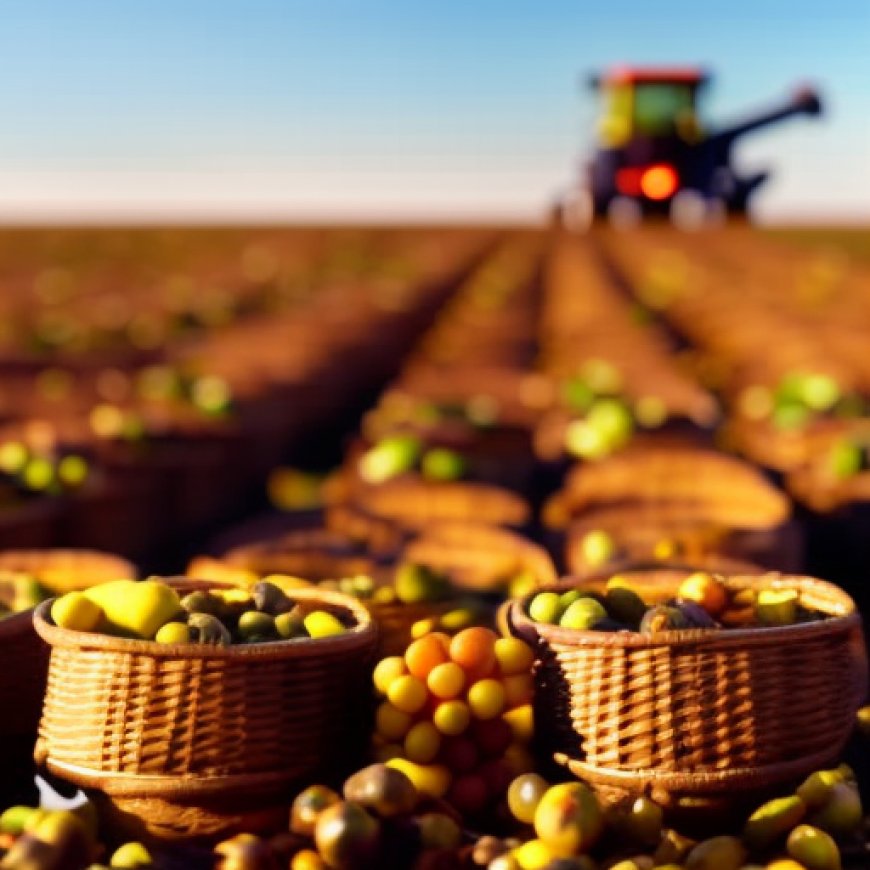Agricultural, forced labor products discussed in Taiwan-U.S. trade talks – Focus Taiwan
Agricultural, forced labor products discussed in Taiwan-U.S. trade talks Focus Taiwan


Taiwan Urges US to Open Market for Agricultural Products

Taipei, May 3 (CNA) – Taiwan’s government expressed a desire for the United States to open its market to Taiwanese pineapples and mangoes, among other agricultural products, during the latest trade talks which concluded on Friday, Taiwan’s top trade negotiator John Deng (鄧振中) told a press conference later the same day.
Trade Talks and Sustainable Development Goals
- Taiwan’s trade representatives “expressed hope for an expedited and transparent approval process” for the country’s applications to export pineapples and mangoes, said Deng, head of the Cabinet’s Office of Trade Negotiations.
- Other agricultural products that Taiwan hopes to sell to the U.S. market include sausages, pork floss, and other processed meat products, according to Deng, who also serves as the Cabinet’s Minister without Portfolio.
- However, he acknowledged that the U.S. side was unable to provide a timeline on the matter.
- It took Taiwan 10 years for the U.S. to green-light Taiwanese guava, Deng said, adding that “we do not want the same thing to happen to pineapples and mangoes.”
His comments were made shortly after Taiwan and the U.S. completed the five-day trade talks under the U.S.-Taiwan Initiative on 21st Century Trade, focusing on the areas of agriculture, labor, and the environment.
The talks came after the two sides signed an initial agreement under the initiative in June 2023, covering customs administration and trade facilitation, good regulatory practices, domestic regulation of services, anticorruption, and small and medium-sized enterprises.
Forced Labor and Sustainable Development Goals
Meanwhile, the issue of forced labor was also on the negotiation table, as the U.S. side called on Taiwan to effectively prevent such practice in its supply chains, Deng said.
- Yang Jen-ni (楊珍妮), who headed the Taiwanese side during the talks, also said at the press event that the two sides spent quite some time discussing what constitutes forced labor and how to counter such practices.
- Deng went on to say that while Taiwan indicated a willingness to address the issue, the country currently lacks a mechanism, legal tools, and professionals to do so.
- Existing laws are “insufficient” and will require amendments or even new legislation, he said. “But I believe there is a consensus on this issue in Taiwan.”
The U.S. delegation was led by Assistant U.S. Trade Representative (USTR) for China, Mongolia, and Taiwan Affairs Terry McCartin, according to the office of the USTR.
SDGs, Targets, and Indicators
| SDGs | Targets | Indicators |
|---|---|---|
| SDG 2: Zero Hunger | 2.3: By 2030, double the agricultural productivity and incomes of small-scale food producers, in particular women, indigenous peoples, family farmers, pastoralists, and fishers, including through secure and equal access to land, other productive resources and inputs, knowledge, financial services, markets, and opportunities for value addition and non-farm employment. | The desire for the United States to open its market to Taiwanese pineapples and mangoes indicates Taiwan’s goal to increase agricultural exports, which can contribute to improving the incomes of small-scale food producers. |
| SDG 8: Decent Work and Economic Growth | 8.3: Promote development-oriented policies that support productive activities, decent job creation, entrepreneurship, creativity, and innovation, and encourage the formalization and growth of micro-, small-, and medium-sized enterprises, including through access to financial services. | The desire to sell agricultural products to the U.S. market, including sausages, pork floss, and other processed meat products, reflects Taiwan’s aim to promote productive activities and support the growth of small- and medium-sized enterprises in the agricultural sector. |
| SDG 12: Responsible Consumption and Production | 12.2: By 2030, achieve the sustainable management and efficient use of natural resources. | The discussion on forced labor and the need for Taiwan to prevent such practices in its supply chains aligns with the goal of achieving responsible consumption and production by ensuring the sustainable and ethical management of resources. |
Copyright: Dive into this article, curated with care by SDG Investors Inc. Our advanced AI technology searches through vast amounts of data to spotlight how we are all moving forward with the Sustainable Development Goals. While we own the rights to this content, we invite you to share it to help spread knowledge and spark action on the SDGs.
Fuente: focustaiwan.tw

Join us, as fellow seekers of change, on a transformative journey at https://sdgtalks.ai/welcome, where you can become a member and actively contribute to shaping a brighter future.







